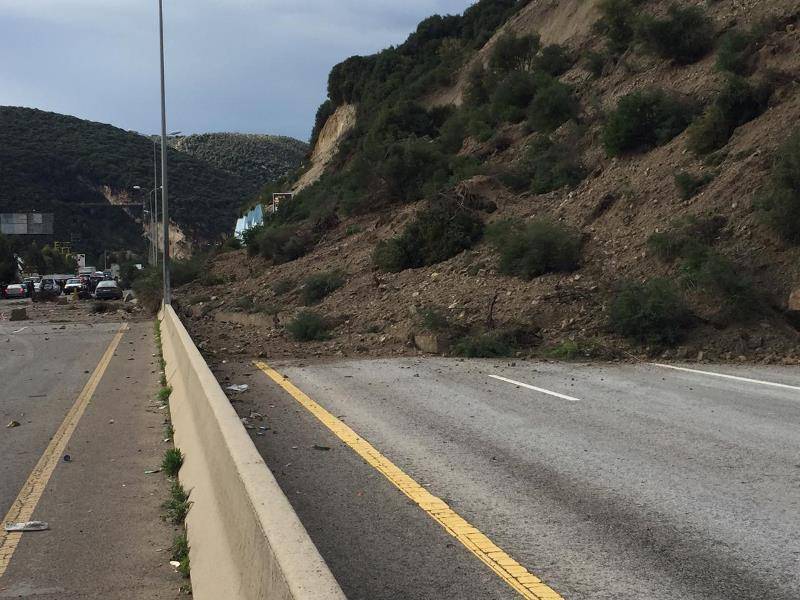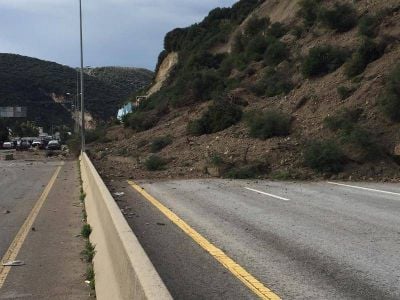
Since a landslide in January 2019 closed the southbound lane of the Chekka-Batroun highway, drivers have been diverted around the site. (Credit: OLJ/archive)
It has been 21 months since the collapse of the retaining wall on Jan. 15, 2019, on the Chekka-Batroun Highway, at the southern exit of the Chekka tunnel. The highway connects the country’s north to Beirut. Today, the risk of further landslides continues to jeopardize the safety of drivers.
With the onset of winter, the risk of landslides is all the more serious as the roadwork, which came to a halt shortly after beginning last year, does not seem ready to be resumed — namely because of the financial crisis in the country.
Why has the retaining wall not been repaired yet? “Nearly two months after the developer launched construction work, the economic and financial crisis erupted in the country,” Mohammad Kheir, secretary-general of the Higher Relief Committee, told L’Orient-Le Jour.
“Importing the machinery and equipment necessary for resuming the roadwork was therefore no longer possible due to the sharp drop of the lira,” he said.
In a bid to overcome this problem, the Higher Relief Committee, in collaboration with the Ministry of Public Works and Transportation, put forward a proposal to unblock the necessary funds for the construction work, and to obtain authorization for the developer to transfer the sum in dollars abroad.
In this regard, Pierre Baaklini, an adviser to Public Works Minister Michel Najjar, said that within the framework of this proposal, the costs of the project have been distributed according to a plan that takes into account the three main types of currency used in the country at the moment.
“First, there is an amount of $3,819,939 in ‘fresh dollars,’ needed to import equipment. Another sum of $4,467,370.74 through a banker’s check, or in Lebanese lira according to the official rate of money changers [LL3,900 to the dollar], is dedicated for the purchase of raw materials, among other things. Add to this another amount for expenses that could be paid in Lebanese lira according to the official exchange rate [LL1,507.5 to the dollar] and which is equivalent to LL1,202,971,809,” Baaklini explains.
During a Sept. 24 meeting, Kheir and Najjar presented the proposal to Hassan Diab and Ghazi Wazni, the outgoing premier and finance minister. It was also communicated to Riad Salameh, the governor of Banque du Liban, the central bank.
According to Baaklini, the proposal was already approved by Diab and the developer, and is now awaiting the approval of the Finance Ministry and BDL so that the developer can transfer the amount in dollars to foreign companies to buy the necessary equipment needed for the resumption of repair work.
“I have been warning for over eight months against any delay in resolving this problem, which poses a threat to the safety of the Lebanese,” Kheir said.
“What’s more, a new landslide on this site, already weakened by the first, risks cutting the north off from the rest of the country,” he added.
Kheir sounded the alarm over the situation, stressing that “despite the economic and financial crisis currently gripping the country, this project should be a top priority for the state.”
This article was originally published in French in L'Orient-Le Jour.
